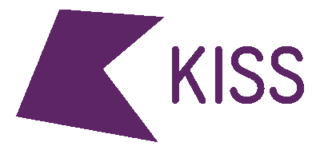Related Research Articles

Capital London is a radio station owned and operated by the Global media company as part of its national Capital FM Network. As Capital Radio it was launched in the London area in 1973 as one of Britain's first two commercial radio stations. Its brief was to entertain, while its opposite number, London Broadcasting (LBC), was licensed to provide news and information. In search of a larger audience in 1974, Capital Radio rapidly moved from a general and entertainment station with drama, features, documentaries and light music to a more successful pop music-based format.
Licensed radio broadcasting in Ireland is one element of the wider media of Ireland, with 85% of the population listening to a licensed radio broadcasting service on any given day.

Independent Local Radio is the collective name given to commercial radio stations in the United Kingdom. As a result of the buyouts and mergers permitted by the Broadcasting Act 1990, and deregulation resulting from the Communications Act 2003, most commercial stations are now neither independent nor local. The same name is used for Independent Local Radio in Ireland.

Imagine FM was an Independent Local Radio station based in Stockport broadcasting to South Manchester and Cheshire in the North West of England.

Kiss is a British digital radio station owned and operated by Bauer as part of the Kiss Network.

London Greek Radio (LGR) is an Independent Local Radio station for London's Greek community, most of which forms part of the ethnically diverse Cypriot community. It broadcasts in both Greek and English on 103.3 FM in London and is also available on DAB in Birmingham and Manchester.
A UK Restricted Service Licence, is typically granted to radio stations and television stations broadcasting within the UK to serve a local community or a special event. Licences are granted by the broadcasting authority Ofcom.
Pirate radio in the United Kingdom has been a popular and enduring radio medium since the 1960s, despite expansions in licensed broadcasting, and the advent of both digital radio and internet radio. Although it peaked throughout the 1960s and again during the 1980s/1990s, it remains in existence today. Having moved from transmitting from ships in the sea to tower blocks across UK towns and cities, in 2009 the UK broadcasting regulator Ofcom estimated more than 150 pirate radio stations were still operating.
KFM was an unlicensed radio station based in Stockport, Greater Manchester, United Kingdom.

WNKS is a commercial FM radio station licensed to serve Charlotte, North Carolina. The station is owned by Beasley Broadcast Group through licensee Beasley Media Group, LLC and broadcasts a top 40 (CHR) format. Studios are located on South Boulevard in Charlotte's South End and the station's broadcast tower is located near Dallas, North Carolina at.
This is a list of events in British radio during 1991.
This is a list of events in British radio during 1990.
This is a list of events in British radio during 1989.
This is a list of events in British radio during 1985.
Sunset 102 was an Incremental radio station, a new type of station licensed by the Independent Broadcasting Authority in 1989. It was the first of a series of licenses awarded by the IBA in areas already served by an Independent Local Radio station. Each station had to offer output not already available on ILR, such as specialist music or unique programmes for a specific section of the community.
Allied Radio plc was a publicly listed radio company that operated, or held an interest in, several Independent Local Radio contractors in the UK during the 1990s.
This is a timeline of the development of independent radio in the UK.

Heart West is a regional radio station owned and operated by Global as part of the Heart network. It broadcasts to the West and the South West of England from studios in Bristol.
This is a timeline of the development of radio in London.
This is a timeline of the development of radio in Greater Manchester.
References
- ↑ Sunset Radio 25th Anniversary Celebrations Continue
- ↑ WNK - London pirate radio history - AM/FM
- ↑ AM/FM Online Edition #1: July 1992 - AM/FM
- ↑ Digital Spy Forums - View Post - Do you remember KFM Manchester?
- ↑ History
- ↑ FTP Radio – Bristol – The Pirate Archive
- ↑ "Buzz FM - 102.4 - Birmingham Radio Station". Archived from the original on 28 September 2011. Retrieved 18 May 2015.
- ↑ Airport Information Radio
- ↑ IBA Engineering Announcements 12 June 1990
- ↑ UK Radio History 3, Commercial Radio, ILR, Capital Radio, By Mike Smith Archived 18 July 2011 at the Wayback Machine
- ↑ Spectrum Radio 558 Remembered | Radio and Telly UK
- ↑ Local radio in Sunderland
- ↑ Digital Spy Forums - View Single Post - What were the first 20 incremental stations?